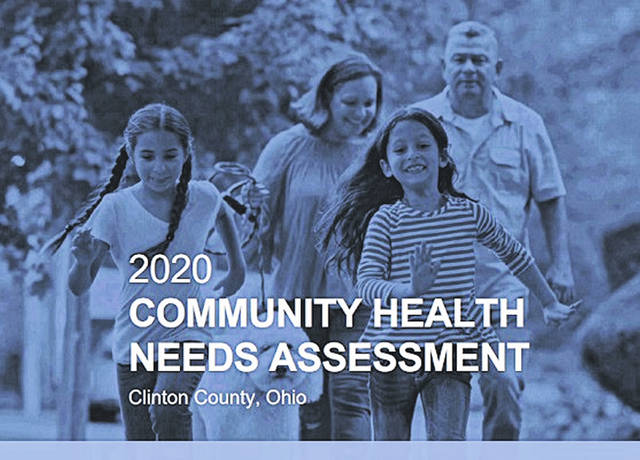
WILMINGTON — Identified as the three health issues of greatest concern in Clinton County are, in order, substance abuse, heart disease (and stroke), and mental health, according to a professional community health needs assessment report.
This was the first such assessment since 2015 to check the pulse of the local population’s health. This assessment is a follow-up to similar studies conducted in 1996, 2001 and 2015.
The fourth through eighth health concerns on the prioritized list of needs are, in order, weight (along with nutrition, physical activity), diabetes, access to health care services, cancer, and tobacco use.
The 180-page assessment document states 13 percent of Clinton County adults report they or an immediate family member has had problems associated with illegal drug use in the past three years. The incidence has worsened since 2015, when it was 8 percent.
About 8 percent of Clinton County adults report they have sought professional help for an alcohol or drug problem at some point in their lives — which the report states is a significant increase since 2001.
Five percent of local adults acknowledge using an illicit drug in the past month, which is higher than the national average. Locally, it is reported much more often among males and adults in low-income households.
A little over 15 percent of area adults are excessive drinkers (heavy and/or binge drinkers). The report says that is well below the U.S. average. Locally, excessive drinking is higher among men, adults under 65, and upper-income residents.
Concerning cardiovascular risk, 94 percent of local adults report one or more cardiovascular risk factors, such as being overweight, smoking cigarettes, being physically inactive, or having high blood pressure or cholesterol. That figure is well above the U.S. percentage, and also is significantly higher than the local 2001 and 2015 numbers.
Among adults here, 18.4 percent believe their overall mental health is “fair” or “poor.” That’s worse than the national figure.
More than a third (34.3 percent) of local adults report a medical professional has, at some point, told them they may have depression, based on symptoms. The reporting is higher among adults under 65, and especially those respondents in low-income households.
Amost 40 percent (39.4 percent) of adults in the county have had two or more years in their lives when they felt depressed or sad on most days, though they may have felt OK sometimes (symptoms of chronic depression).
The assessment report states this self-reporting of feeling depressed is well above the U.S. percentage, and further it represents a statistically significant increase from the 1996 and 2001 local survey results. This feeling of being depressed for two or more years in their lives is reported by half of local low-income adults.
A little over 17 percent of Clinton County adults feel that most days for them are “very” or “extremely” stressful, which is a statistically significant increase since 2015.
Overall, 5.2 percent of survey respondents acknowledge they considered or attempted some type of self-harm in the past year. This was reported most often among adults under 45 and those in low-income households.
And 20.4 percent are currently taking medication or otherwise receiving care for a mental health diagnosis or emotional problem, something reported especially among low-income respondents.
Editor’s Note: Part 2 highlighting and summarizing the 2020 Community Health Needs Assessment report for Clinton County is expected to be published soon in an upcoming edition.


